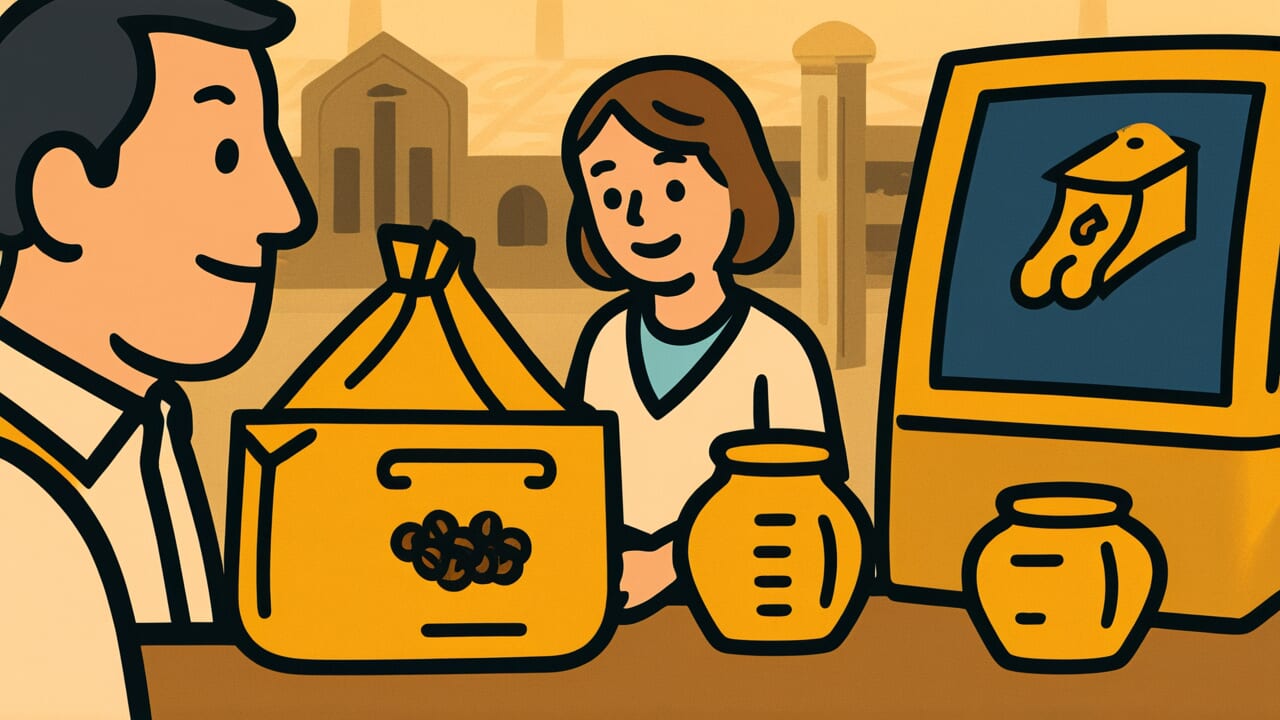How to Read “Better to trade in rice bran you know than silk fabrics you don’t”
Shiranu gofuku shōbai yori shitta konuka akinai
Meaning of “Better to trade in rice bran you know than silk fabrics you don’t”
This proverb means it’s better to work in a small business you know well than to jump into a big business you don’t understand.
It teaches the importance of working steadily in your area of expertise. Don’t be fooled by size or glamorous appearances.
People use this saying when someone wants to chase after a new venture or big opportunity without thinking carefully.
Flashy big projects look attractive. But without knowledge or experience, the risk of failure is high.
A humble job you understand well will bring more reliable results. Even if it seems boring, you can achieve steady success.
This thinking still works today. Making big investments in unfamiliar fields is risky.
Building a solid track record in your strong areas is often the faster path to long-term success.
This proverb teaches us to value certainty and stability over flashiness.
Origin and Etymology
The exact first appearance of this proverb in literature is unclear. However, it likely emerged from merchant culture during the Edo period.
The contrast between “silk fabrics” and “rice bran” is worth noting. Silk fabrics referred to high-end cloth made from silk.
In the Edo period, this business required large capital and specialized knowledge. Rice bran, on the other hand, was a byproduct of rice milling.
People used it as cheap animal feed or fertilizer. By contrasting these two, the proverb vividly shows the difference in business scale and difficulty.
The choice of words “you don’t know” and “you know” is also interesting. The focus isn’t on “big” versus “small.”
Instead, it emphasizes the presence or absence of knowledge and experience. This shows that Edo period merchants believed deep understanding and experience mattered more than capital size.
In fact, many merchants in the Edo period failed by forcing themselves into businesses too big for them.
Ancestors who witnessed such failures created this saying to pass down the importance of steady business practices. It’s practical wisdom condensed from merchant experience.
Usage Examples
- If you’re starting a business, follow “Better to trade in rice bran you know than silk fabrics you don’t” and begin with your area of expertise
- Rather than jumping at investment opportunities, embrace the spirit of “Better to trade in rice bran you know than silk fabrics you don’t” and deepen your specialized field
Universal Wisdom
The universal truth in this proverb addresses the eternal conflict between “longing for bigger things” and “realistic ability.”
Everyone dreams of greater success and more glamorous stages. This reflects the beautiful human quality of ambition.
But at the same time, we all have limits to our skills and experience. Swinging between these two forces is part of being human.
Our ancestors understood this human nature deeply. Chasing big dreams is wonderful.
But if those dreams exceed your knowledge and experience, failure becomes unavoidable. Instead, demonstrating your abilities in a small area you deeply understand leads to bigger results.
They learned this from countless experiences over time.
This proverb has been passed down for so long because it’s not just business advice. It’s wisdom that applies to all of life.
By looking firmly at your own feet and taking on challenges that fit your abilities, you can eventually reach great heights.
Our ancestors showed us this path of steady growth.
When AI Hears This
In communication engineering, there’s a concept called channel capacity. It shows how much information you can accurately send per second.
What’s interesting is this fact: in noisy communication channels, trying to send bigger data increases errors. The amount of information that actually arrives decreases.
The difference between silk fabric trading and rice bran trading can be explained by this principle exactly.
In unfamiliar fields, your brain has no “reference data for correct judgment.” Market movements, customer preferences, purchasing timing—all information comes in “covered with noise.”
Profits may look large, but the probability of misjudgment is too high. When you calculate expected value, it often turns out negative.
In familiar fields, however, you can interpret incoming information accurately. You don’t miss small changes and can instantly judge whether they’re opportunities or dangers.
In communication terms, this is “a state with extremely high error correction ability.” For example, an expert who can judge quality just by looking at rice bran’s color and luster can extract massive accurate judgments from minimal information.
Shannon’s theorem teaches that information transmission efficiency depends more on “low noise” than “large bandwidth.”
This proverb embodies that mathematical truth in the business world.
Lessons for Today
This proverb teaches modern people the importance of accurately understanding your strengths and making the most of them.
Modern society overflows with information. New opportunities appear one after another before our eyes.
On social media, we see other people’s glamorous successes. This makes us want to take on big challenges too.
But what truly matters is identifying what you deeply understand. Where can you reliably provide value?
The knowledge and experience you have now are precious assets built up over a long time.
They may look humble, but they’re your unique strengths that no one else can imitate. Use those strengths in the right place and steadily build your track record.
The confidence and experience you gain become a solid foundation for bigger challenges later.
You don’t need to rush. Even small steps, as long as they’re certain steps, are ultimately the fastest and most reliable path to your goals.
Polish the treasure that lies at your feet with care.



Comments